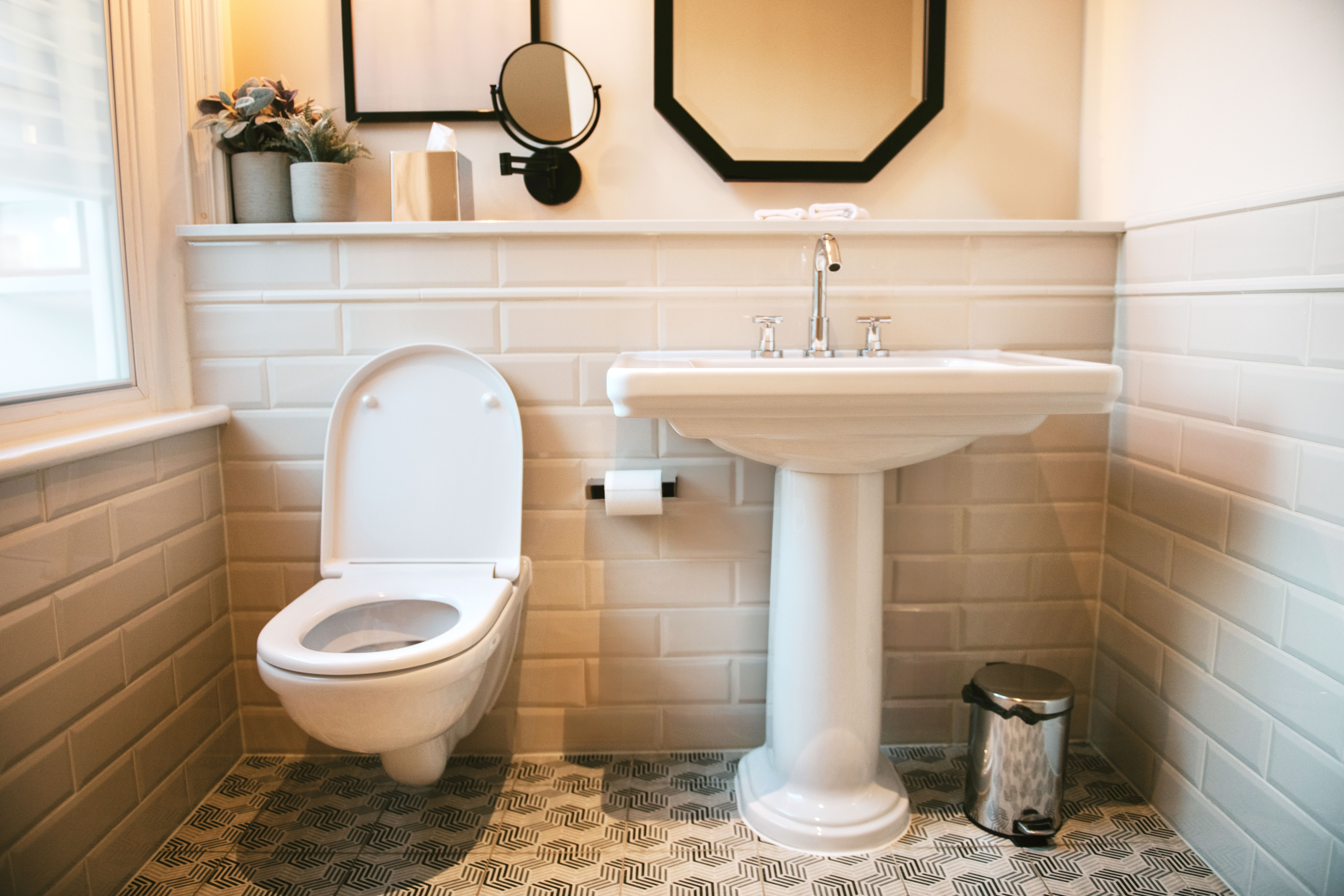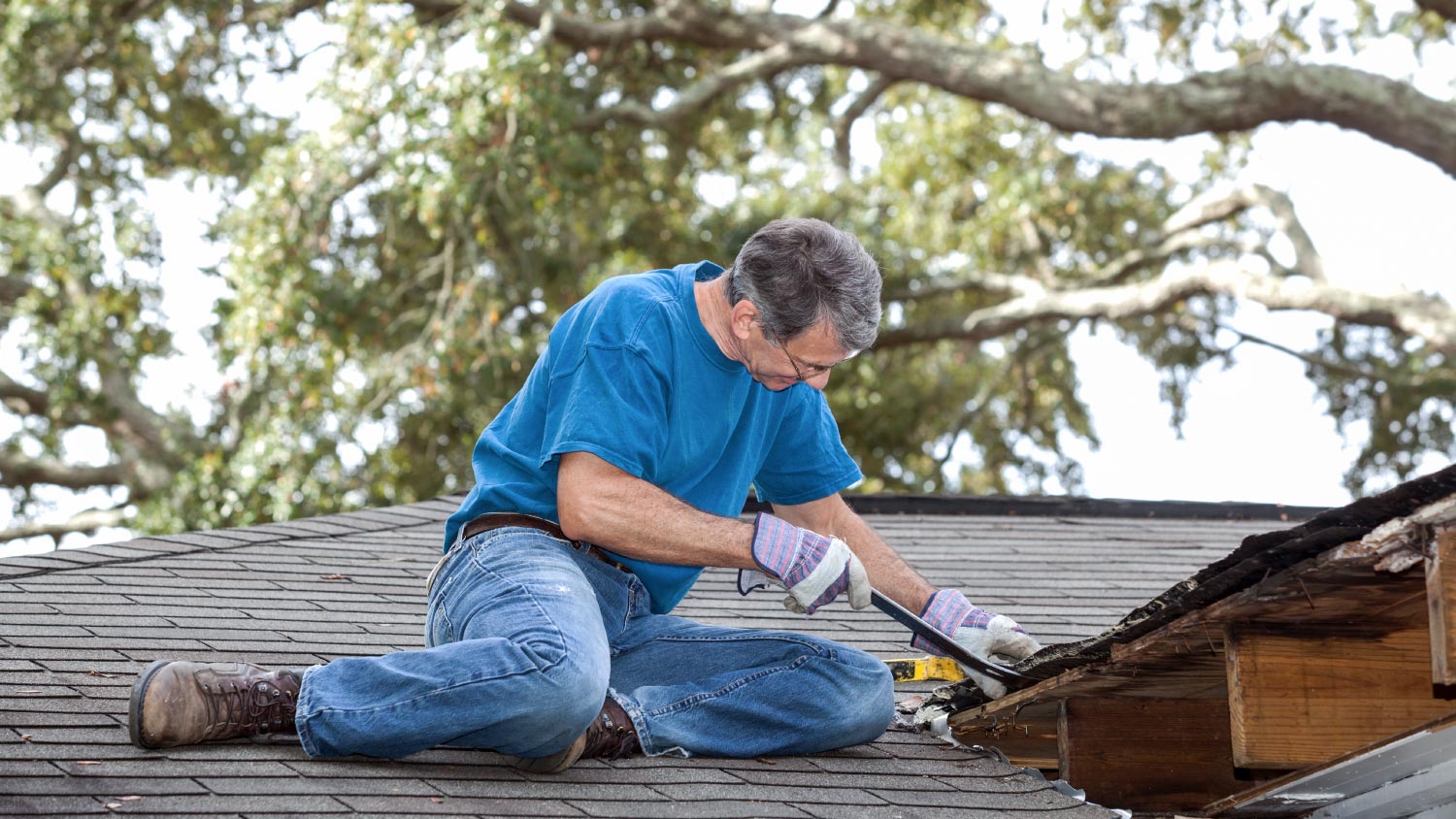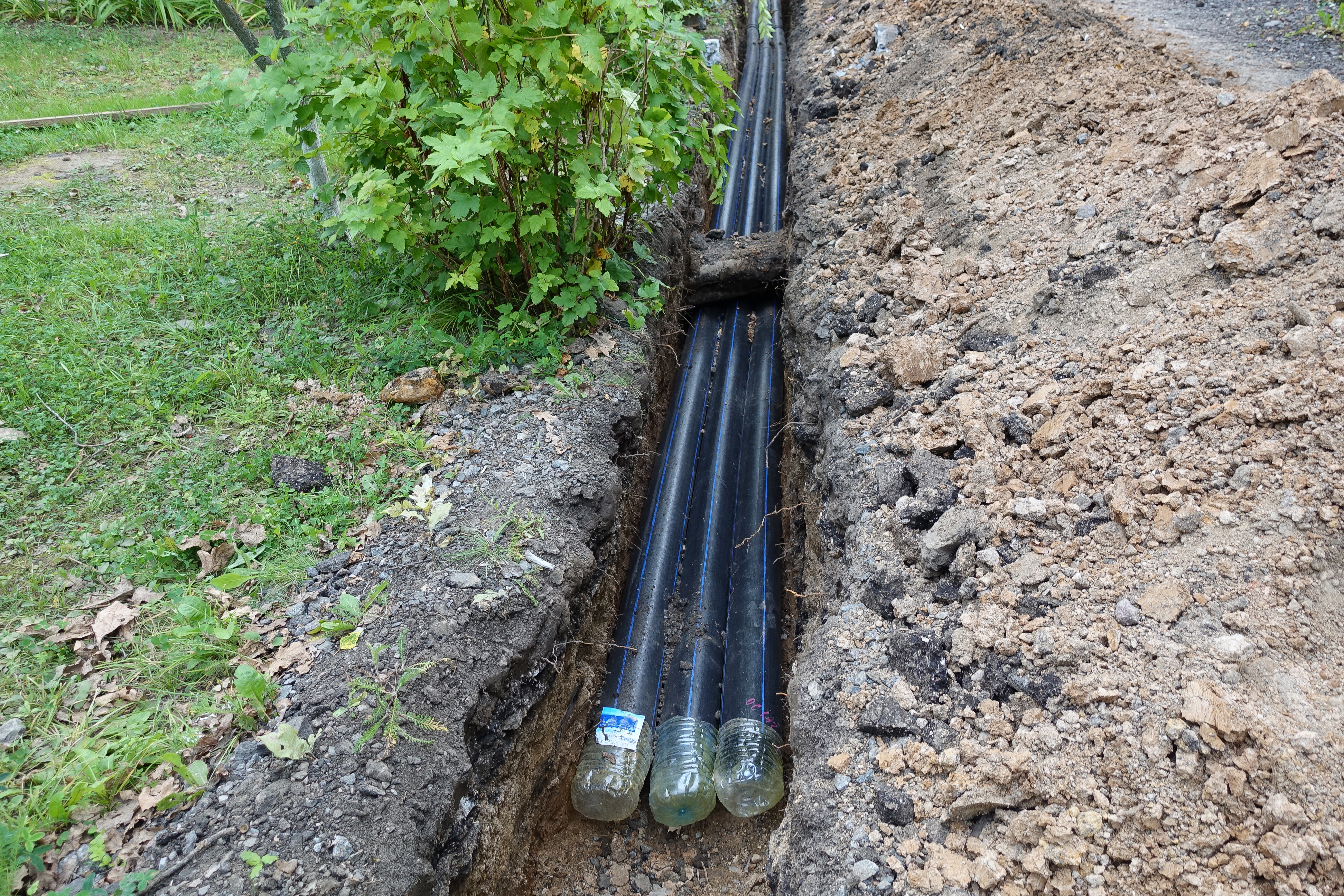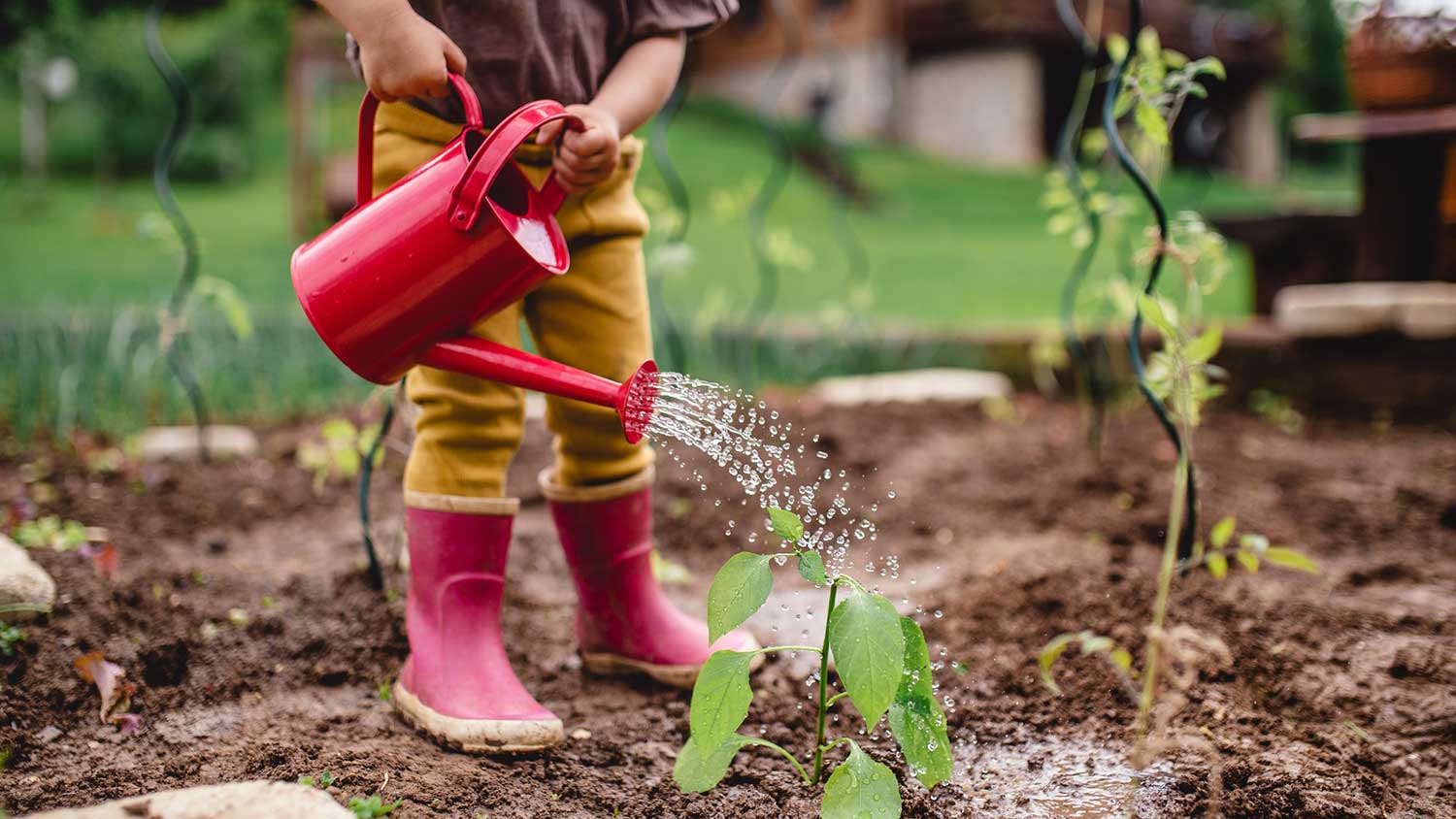
Learn how much a plumber costs in Atlanta and how to hire a licensed pro for repairs, upgrades, or emergency plumbing service in your neighborhood.
Before your kitchen becomes a fish tank, you need to know who to hire


Call a roofer instead of a plumber.
Any vent pipes connected to your oven range carry away smoke, odors, and maybe grease—not water.
Don’t try to fix an exhaust range leak on your own.
This is possible, but not without difficulty. The issues here are two-fold. Firstly, it’s tough to diagnose this issue, so experience is mandatory. The problem could lay anywhere along the exhaust pipe, at the pipe’s exit on the roof, with the exhaust fan, or in any number of other locations. You might spend days just trying to wrap your head around what’s going on.
Secondly, it’s dangerous to traipse around a roof looking for a small exhaust pipe. You shouldn’t risk it unless you have the proper safety gear and plenty of confidence in your abilities.
Again, this boils down to experience. You can hire a local general contractor to diagnose and fix some of the underlying issues causing exhaust vent leaks when it rains. Sometimes, all it takes is a simple cap replacement at the point of entry on the roof.
However, as previously mentioned, there are plenty of other reasons why these leaks happen, and your average contractor may not have experience with all of them. However, a roofer likely diagnoses and repairs this problem every day. Even small leaks can become problematic down the line, so make sure you take care of the issue as soon as you notice one.
This is possible, but not without difficulty. The issues here are two-fold. Firstly, it’s tough to diagnose this issue, so experience is mandatory. The problem could lay anywhere along the exhaust pipe, at the pipe’s exit on the roof, with the exhaust fan, or in any number of other locations. You might spend days just trying to wrap your head around what’s going on.
Secondly, it’s dangerous to traipse around a roof looking for a small exhaust pipe. You shouldn’t risk it unless you have the proper safety gear and plenty of confidence in your abilities.
Again, this boils down to experience. You can hire a local general contractor to diagnose and fix some of the underlying issues causing exhaust vent leaks when it rains. Sometimes, all it takes is a simple cap replacement at the point of entry on the roof.
However, as previously mentioned, there are plenty of other reasons why these leaks happen, and your average contractor may not have experience with all of them. However, a roofer likely diagnoses and repairs this problem every day. Even small leaks can become problematic down the line, so make sure you take care of the issue as soon as you notice one.
This is possible, but not without difficulty. The issues here are two-fold. Firstly, it’s tough to diagnose this issue, so experience is mandatory. The problem could lay anywhere along the exhaust pipe, at the pipe’s exit on the roof, with the exhaust fan, or in any number of other locations. You might spend days just trying to wrap your head around what’s going on.
Secondly, it’s dangerous to traipse around a roof looking for a small exhaust pipe. You shouldn’t risk it unless you have the proper safety gear and plenty of confidence in your abilities.
Again, this boils down to experience. You can hire a local general contractor to diagnose and fix some of the underlying issues causing exhaust vent leaks when it rains. Sometimes, all it takes is a simple cap replacement at the point of entry on the roof.
However, as previously mentioned, there are plenty of other reasons why these leaks happen, and your average contractor may not have experience with all of them. However, a roofer likely diagnoses and repairs this problem every day. Even small leaks can become problematic down the line, so make sure you take care of the issue as soon as you notice one.

This is possible, but not without difficulty. The issues here are two-fold. Firstly, it’s tough to diagnose this issue, so experience is mandatory. The problem could lay anywhere along the exhaust pipe, at the pipe’s exit on the roof, with the exhaust fan, or in any number of other locations. You might spend days just trying to wrap your head around what’s going on.
Secondly, it’s dangerous to traipse around a roof looking for a small exhaust pipe. You shouldn’t risk it unless you have the proper safety gear and plenty of confidence in your abilities.
Again, this boils down to experience. You can hire a local general contractor to diagnose and fix some of the underlying issues causing exhaust vent leaks when it rains. Sometimes, all it takes is a simple cap replacement at the point of entry on the roof.
However, as previously mentioned, there are plenty of other reasons why these leaks happen, and your average contractor may not have experience with all of them. However, a roofer likely diagnoses and repairs this problem every day. Even small leaks can become problematic down the line, so make sure you take care of the issue as soon as you notice one.
This is possible, but not without difficulty. The issues here are two-fold. Firstly, it’s tough to diagnose this issue, so experience is mandatory. The problem could lay anywhere along the exhaust pipe, at the pipe’s exit on the roof, with the exhaust fan, or in any number of other locations. You might spend days just trying to wrap your head around what’s going on.
Secondly, it’s dangerous to traipse around a roof looking for a small exhaust pipe. You shouldn’t risk it unless you have the proper safety gear and plenty of confidence in your abilities.
Again, this boils down to experience. You can hire a local general contractor to diagnose and fix some of the underlying issues causing exhaust vent leaks when it rains. Sometimes, all it takes is a simple cap replacement at the point of entry on the roof.
However, as previously mentioned, there are plenty of other reasons why these leaks happen, and your average contractor may not have experience with all of them. However, a roofer likely diagnoses and repairs this problem every day. Even small leaks can become problematic down the line, so make sure you take care of the issue as soon as you notice one.
From average costs to expert advice, get all the answers you need to get your job done.

Learn how much a plumber costs in Atlanta and how to hire a licensed pro for repairs, upgrades, or emergency plumbing service in your neighborhood.

Discover the primary factors that will affect your main water line replacement cost in Atlanta, including length, material selection, and installation method.

Discover average main water line repair costs in Atlanta, GA, plus local factors that affect price, when to hire a pro, and how to maximize your budget.

Want to get water down your drains quickly and efficiently? You need the right sink drain pipe size. Learn here how to find the right size and how to measure.

Discover grey water system cost details to learn about installation, maintenance, and ways to save on your home’s grey water system.

If your tub stopper is ruining bathtime or it’s time for a new one, you can easily DIY the job. Keep reading to discover how to remove a bathtub drain stopper.